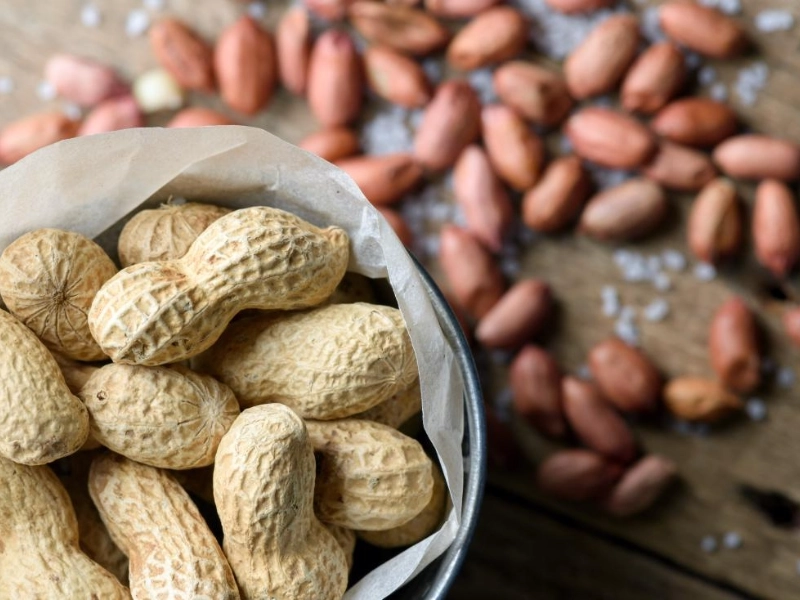Nuts and Diabetes: A Smart Choice for Blood Sugar Management
1. Appreciating Blood Sugar Levels and Diabetes The chronic illness diabetes influences the way the body converts glucose, blood sugar. Type 1 diabetes, in which the body does not create insulin, and Type 2 diabetes, in which the body either grows resistant to insulin or produces insufficient, are the two main forms. For those with diabetes, controlling blood sugar levels is absolutely vital since high glucose levels can cause major medical problems. Blood sugar management is largely influenced by diet; so, include nuts in regular meals can be a good approach.
2. Nutritional Viewpoint of Nuts Nutrient-dense foods, nuts offer a range of vital elements. Rich in good fats, protein, fibre, vitamins, and minerals are they are are Typical variations call for almonds, walnuts, pistachios, and cashews. These components taken together help to explain their health advantages, hence nuts are a wise choice for people with diabetes. Their great fibre content helps to slow down sugar absorption into the bloodstream, therefore supporting blood sugar regulation.

 5. Anti-inflammatories and antioxidants Antioxidants included in many nuts assist to fight oxidative stress in the body. Often connected to diabetes and its complications, inflammation can result from oxidative stress. For instance, walnuts abound in polyphenols and other molecules with anti-inflammatory action. Including nuts in the diet helps diabetics gain from their protective qualities, so lowering their possible risk of complications related to their condition.
6. Moderation and Portion Control Although nuts are healthful, they are also calorie-dense, hence portion control is rather important. Usually regarded as a serving size is a little handful of nuts—about one ounce. Monitoring intake helps one prevent too high calorie consumption, which can cause weight increase. Selecting unsalted and unflavoured forms can also help cut extra sugars and bad fats. By use of conscious eating habits, people can enjoy the advantages of nuts without overindulging.
5. Anti-inflammatories and antioxidants Antioxidants included in many nuts assist to fight oxidative stress in the body. Often connected to diabetes and its complications, inflammation can result from oxidative stress. For instance, walnuts abound in polyphenols and other molecules with anti-inflammatory action. Including nuts in the diet helps diabetics gain from their protective qualities, so lowering their possible risk of complications related to their condition.
6. Moderation and Portion Control Although nuts are healthful, they are also calorie-dense, hence portion control is rather important. Usually regarded as a serving size is a little handful of nuts—about one ounce. Monitoring intake helps one prevent too high calorie consumption, which can cause weight increase. Selecting unsalted and unflavoured forms can also help cut extra sugars and bad fats. By use of conscious eating habits, people can enjoy the advantages of nuts without overindulging.
 7. Simple Ways to Add Nuts to Your Diet Including nuts in your regular diet can be easy and taste-b pleasing. For extra texture and taste, toss them into salads, yoghurt, cereal, or smoothies. On their own or blended with dried fruits for a healthy trail mix, nuts also make a fantastic snack. Changing the kinds of nuts you use will add a range of nutrients and keep meals interesting.
8. nuts and cardiovascular health People with diabetes run more risk for heart disease, therefore heart health becomes quite important. Because they lower blood pressure and cholesterol, nuts have been demonstrated to enhance cardiovascular health. Nutrients include antioxidants, fibre, and healthy fats from nuts help to provide these advantages. Including nuts in a balanced diet helps diabetics control their blood sugar levels and improve their cardiac function.
7. Simple Ways to Add Nuts to Your Diet Including nuts in your regular diet can be easy and taste-b pleasing. For extra texture and taste, toss them into salads, yoghurt, cereal, or smoothies. On their own or blended with dried fruits for a healthy trail mix, nuts also make a fantastic snack. Changing the kinds of nuts you use will add a range of nutrients and keep meals interesting.
8. nuts and cardiovascular health People with diabetes run more risk for heart disease, therefore heart health becomes quite important. Because they lower blood pressure and cholesterol, nuts have been demonstrated to enhance cardiovascular health. Nutrients include antioxidants, fibre, and healthy fats from nuts help to provide these advantages. Including nuts in a balanced diet helps diabetics control their blood sugar levels and improve their cardiac function.
 9. Evidence and Scientific Research Many studies have underlined how well nuts help control blood sugar levels. Studies show that frequent nut intake lowers risk of Type 2 diabetes and improves glycemic control. For example, frequent nut consumption was linked in a study written for the American Journal of Clinical Nutrition to better blood sugar levels than non-regular nut consumption. These results support the theory that a diabetic-friendly diet might benefit much from nuts.
10. Review of Nuts as a Smart Choice A healthy and flexible diet, nuts can help control diabetes and support general health in great part. Healthy fats, fibre, protein, and antioxidants taken together help to stabilise blood sugar levels and support heart health. Those with diabetes can enjoy great snacks and properly control their condition by including nuts into a balanced diet. Adopting a healthy lifestyle including nuts might result in better blood sugar control and general well-being.
9. Evidence and Scientific Research Many studies have underlined how well nuts help control blood sugar levels. Studies show that frequent nut intake lowers risk of Type 2 diabetes and improves glycemic control. For example, frequent nut consumption was linked in a study written for the American Journal of Clinical Nutrition to better blood sugar levels than non-regular nut consumption. These results support the theory that a diabetic-friendly diet might benefit much from nuts.
10. Review of Nuts as a Smart Choice A healthy and flexible diet, nuts can help control diabetes and support general health in great part. Healthy fats, fibre, protein, and antioxidants taken together help to stabilise blood sugar levels and support heart health. Those with diabetes can enjoy great snacks and properly control their condition by including nuts into a balanced diet. Adopting a healthy lifestyle including nuts might result in better blood sugar control and general well-being.








